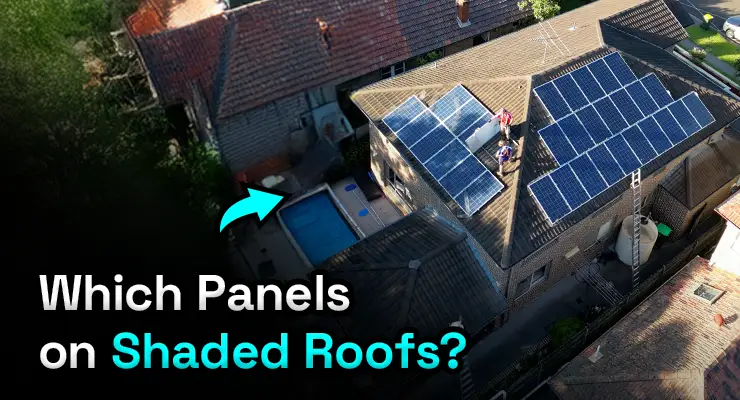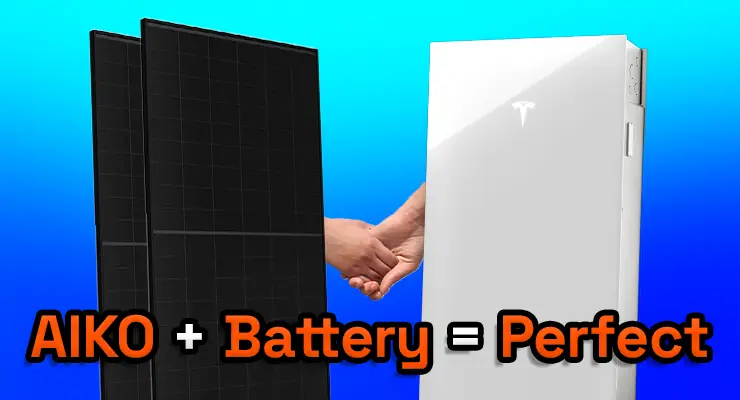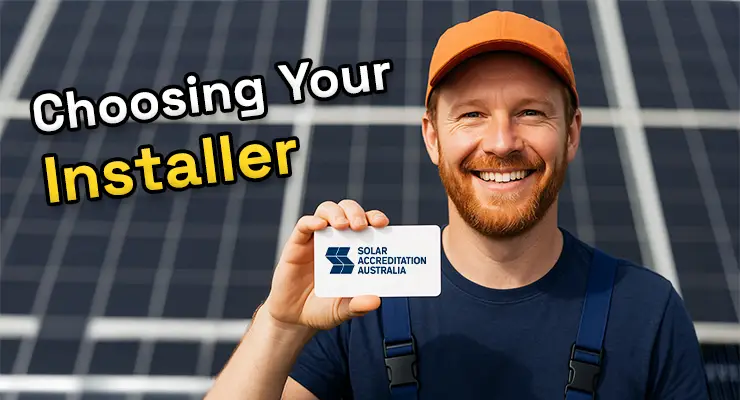Fast read
When choosing panels, inverters, and racking for a commercial solar system, prioritising high-performance, reliable solar products, and quality installation is crucial for long-term financial benefits and environmental impact. Trusted brands like REC, SunPower, Qcells, Trina, Jinko, and Longi offer excellent options.
Inverters from Enphase, Fronius, SMA, Sungrow, and Solaredge are reputable choices. Racking manufacturers like Clenergy, Schletter, and Sunlock provide weather-resistant options. Selecting reliable long-lasting suppliers is essential because of the large number of manufacturers that have exited the market, affecting product warranty support.
The Tier 1 label should not be solely relied upon for quality assurance, as it is based on bankability rather than product quality. The life expectancy of string inverters is generally 10 to 15 years, while high-quality panels can last 20 to 25 years. Regular maintenance and monitoring, including cleaning and fault reporting, are essential to optimise financial returns and system performance.
What solar components such as panels, inverters and racking should I choose?
High-performing and reliable solar components and good-quality installation will secure you the best financial outcome over time and reduce any liability for your organisation and the environment in the case of a commercial solar power system.
The longevity and thus maximised savings over future decades depend mainly on the selection of solar panels and inverters, the weather resistance of the racking, and the quality of the installation.
Local representation and set setup are essential considerations in choosing the product. Long-term warranty support depends on the manufacturer’s genuine commitment to their Australian business.
A large variety of different solar inverters and solar panels are available. While the differences are sometimes hard to identify, the bandwidth of features, performance and quality is much larger than “what meets the eye”, i.e. all panels look exceedingly similar. In a “buyer be aware” market, getting professional advice is often a wise decision.
In panels, REC, SunPower and Qcells are excellent solar components. Regarding Chinese-owned panel manufacturers Trina, Jinko, and Longi have established themselves with a reliable product range.
Many of you have heard of Enphase, Fronius, SMA, Sungrow and Solaredge regarding inverter solutions. Clenergy, Schletter and Sunlock are reputable racking manufacturers.
Did you know?
Since 2011 close to 400 solar panel manufacturers and close to 100 inverter manufacturers have come and gone, creating an avalanche of solar panel systems without the promised long-term warranties. Samples of panel manufacturers that have exited the local market include Rene Sola, Hareon Solar, LDK, Munsterland Solar and German Solar.
This means the relationship with a reliable, long-lasting solar component supplier is more important than ever to ensure long-term warranty support. Thankfully this situation has now settled somewhat, with the larger suppliers of quality gear having settled well in the country.
All panel manufacturers selling commercial solar panels in Australia offer solar modules with a 25-year performance warranty, registered by the Clean Energy Council.
The detailed assessment of the brand, company size, financial standing, holding of patents, global track record reputation, warranties, internal research and development, location of manufacturing, vertical integration (i.e. do they produce everything in-house or do they only do the final assembly) are just a few indicators a professional would use to ascertain the true level of value of a chosen solar panel or inverter.

Are Tier 1 solar panels good quality?
Bloomberg New Energy Finance (BNEF) has created a system to rank different makers of PV (solar) panels since there is no common set of rules or standards to measure their quality or performance. They call this ranking a tiering system, and it’s based on whether banks are willing to lend money for six commercial solar projects within a certain time frame. This system helps to tell the difference between the many companies that make these panels.
Sadly, this way of ranking the companies doesn’t actually tell you anything about how well the panels are made or if the company making them is financially stable.
Here’s what the ranking means: Tier 1 solar panel makers have supplied their own brand and own-made products to six projects (each 1.5MW or bigger), and six different banks have financed these projects in the past two years without any specific conditions.
From this definition, you can see that being on the Tier 1 list doesn’t tell you anything about the quality, how well the panels perform, research and development, warranty, local help and support, how long they last, or any other factor that might matter to someone buying a solar panel.
Look at the manufacturer’s local history
So, when picking solar components, it’s crucial to look at the history of the manufacturer, how well-known and trusted they are, and whether they offer local service and support. Only the makers who have been financially stable for a long time and have a strong ongoing business in Australia are likely to be there to help with any long-term warranty issues.
To put it in the words of Bloomberg New Energy Finance: “We strongly suggest that people buying modules and banks don’t just use the Tier 1 list to decide if something is good quality. They should talk to a firm that checks these things technically instead.”

Solar components and maintenance
Solar systems are generally low-maintenance as they don’t have moving parts and can mostly take care of themselves. But since they’re outside and exposed to weather, they’re like any other property of the company that needs to be taken care of.
Your commercial solar system installer should give you a manual with a schedule for routine care, like checking how things look and cleaning them.
Keeping solar panels clean helps them change more sunlight into electricity. Another thing to think about is that dirty inverters, especially if they’re in a place with lots of dust, might not cool down properly, and this could lead to less power output and early breakdown.
Having a solar monitoring system that allows you to watch what’s happening with your solar equipment online and alerts you if something’s wrong is an excellent idea. This way, you can manage your solar system all the time and make sure it’s being taken care of.
You can find simple ways to keep an eye on your inverters already built into them. Also, more advanced options, like a third-party system called Solar Analytics, exist. This monitoring app has different features, costs, and maybe even ongoing charges, so it’s a good idea to talk to an expert to determine what’s best for you.



